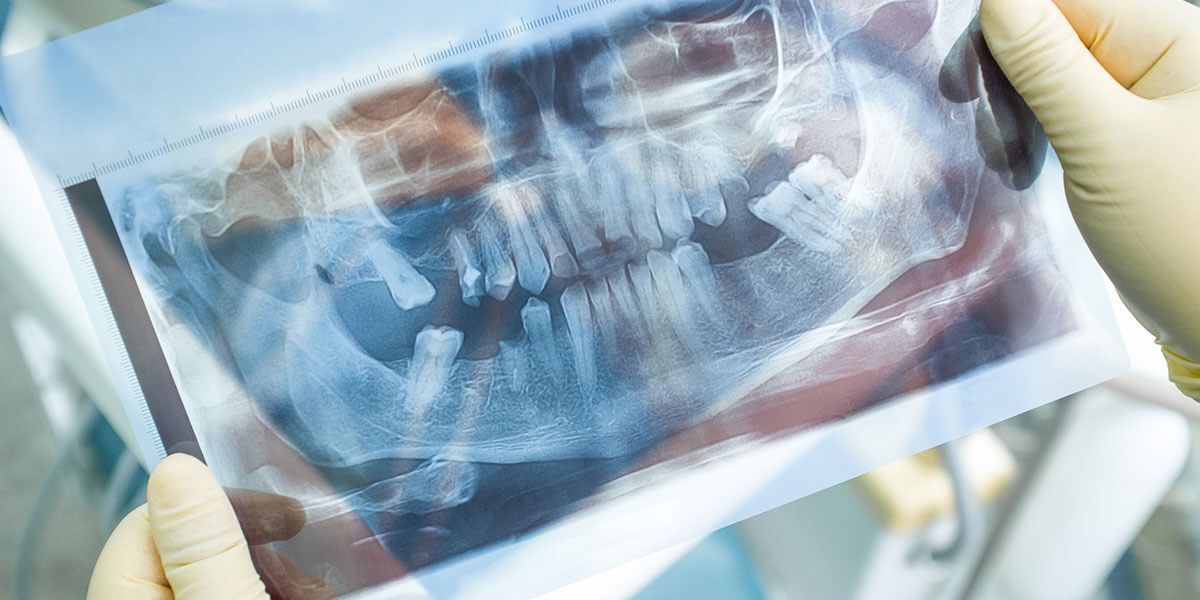Jaw Bone Grafting in Middletown & New Britain, CT

Bone grafting may be required to address defects in a patient’s jaw. Bone grafting is a form of reconstructive surgery that helps to generate and rebuild bone and increase bone density.
Bone grafting surgery is performed to correct problems that may be the result of:
- Defects present from birth
- Trauma
- Removal of a tumor
- Tooth loss and subsequent loss of bone in the related jaw area
Minor Bone Grafting
The most common bone grafting procedure is performed to enhance the upper or lower jaw bone in order to increase bone quantity and density in preparation for the placement of dental implants.
When a tooth is lost, the surrounding bone often is often affected over time. Patients without enough jaw bone mass are not candidates for dental implants. Bone grafting is often performed to reverse bone loss or enhance existing bone, allowing for the placement of dental implants after the bone graft has healed and created the necessary foundation for the implants.
Bone grafting for the purpose of rebuilding jaw bone to support dental implants can usually be done in our office. The surgeon may recommend that the grafting material be taken from the patient's own bone or from another source. Synthetic material can also be used to generate bone growth. Bone grafting allows for proper support of dental implants or prostheses. Healing time prior to the placement of the implants is generally between 4 - 6 months, though it can sometimes take longer.
Major Bone Grafting
For more extensive bone grafting procedures, such as the correction of congenital defects, a hospital setting is required and grafting material may be taken from other areas such as the skull or hip.
Frequently Asked Questions About Bone Grafting
What Is Bone Grafting?
For some patients, areas of the jaw may not be sufficient for certain procedures, such as a dental implant. This may be due to defects present since birth, injury, or tooth loss.
In a bone grafting procedure, bone is taken from a donor area or other source and placed into the area that needs to be grafted. The body absorbs and integrates this new bone over time to fill the area.
How Long Does It Take To Recover From A Bone Graft?
Bone grafts do take some time to heal since bone is slow to heal on its own. Typically, the minimum amount of time to fully heal from a bone graft is 4 months. In some cases, it can take up to 6 months.
Despite the long healing time, patients are free from pain or discomfort within a week after the procedure.
Can Your Body Reject A Bone Graft?
No. However, a graft can fail for other reasons. But this is extremely rare and bone grafts have an extremely high success rate when performed correctly.
What Are Bone Grafts Used For?
The most common reason for a bone graph is to create a suitable structure for a dental implant. Previous tooth loss can cause the underlying bone structure to become too weak to support a dental implant.
Dental implants involve a titanium screw that is inserted into the jaw bone. Because of this, there must be sufficient bone for the screw to properly be set in place.
What Can I Expect After A Bone Graft Procedure?
For the first 4 days, you want to avoid any strenuous activities, bending over, or exercise.
To manage any discomfort, apply ice packs to the area for the first 48 hours or as recommended by your doctor. Over-the-counter anti-inflammatories or prescribed pain medication can help with discomfort if needed.
Within a week, most patients can return to normal daily activities and diet, with only a few restrictions on foods. Within two weeks most patients fully return to normal activities.
From there, it takes an additional 4 to 6 months for the site to fully heal in preparation for the implant.
What Should I Avoid After A Bone Graft?
Your doctor will go over all your post-operative instructions with you after the procedure. These will include:
- Avoid exercise or strenuous activity
- Do not disturb the surgical site
- Do not brush the site for at least 3 days
- Eat soft foods for the first two days
- Avoid using straws or carbonated beverages for 3 days
These are just general guidelines for post-operative bone graft instructions. Make sure to follow your doctor's advice for instructions specifically tailored to your case.
How Long After A Bone Graft Do I Receive My Implant?
In most cases, within four to six months the graft site has healed sufficiently to support the implant. In some cases it may take up to a year if there are healing issues along the way.
After the bone graft and implant process is complete, it may take several months to receive the artificial tooth and abutment from your general dentist.
What Should I Do If I Have A Question About My Bone Graft?
If you have any questions about bone graft surgery, make sure to contact your surgeon's office. They will be able to provide you with specific instructions based on your individual case and exact procedure.
